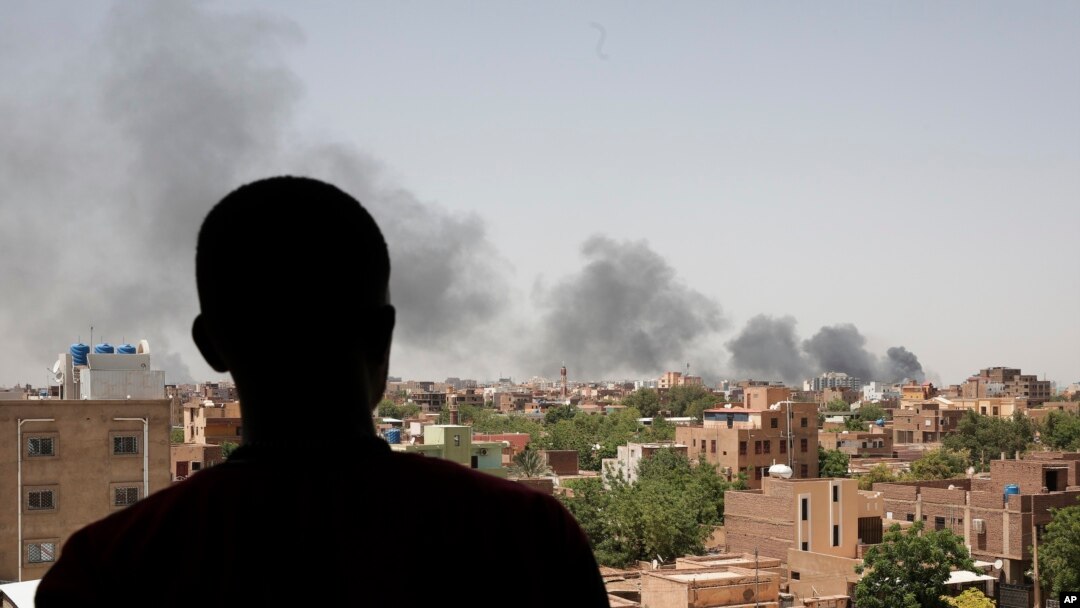United States President Joe Biden announced Saturday the successful extraction of U.S. government personnel from Sudan and the temporary suspension of U.S. embassy operations and diplomatic mission the capital, Khartoum.
He said he remained committed to the Sudanese people, reiterating calls for a ceasefire.
Other countries have done the same.
British Prime Minister Rishi Sunak said on Sunday the country's armed forces evacuated diplomatic staff and their family members from Sudan.
Cameron Hudson, senior associate at the Washington-based Center for Strategic and International Studies, said the exodus of foreign nationals presents a new problem for Sudan's citizens.
"As international employees leave, I think there will be less concern about what happens to Sudanese civilians, and I think that will create a situation where violence is even worse," Hudson said.
Several cease-fires have been announced in Sudan by the feuding parties since the eruption of fighting last Saturday but none have been respected.
Over 400 people have been killed and some 3,500 injured since fighting broke out according to the World Health Organization (WHO).
Civilians in the capital and other towns across Sudan have reported relentless fighting and shelling. Families are also fleeing Khartoum to safer places, and many are leaving Sudan to neighboring countries.
"Every day buses leave Sudan and cross the northern border to Egypt. There are people who are crossing the border into neighboring Chad despite Chad’s border being closed." Samah Salman, president of the U.S.-Educated Sudanese Association, told VOA.
"We have reports that more than 20,000 Sudanese have entered Chad. Thousands have entered Egypt," Salman said.
Thousands more have left their homes in the center of Khartoum to 'safer zones' of Khartoum, she said, adding both Sudan’s army chief Abdel-Fattah al-Burhan and RSF commander Mohamed Hamdan Dagalo, also known as Hemedti, have shown belligerence in pursuing a fight to the finish — undeterred by prospects of U.S. sanctions or calls from the international community for a genuine ceasefire.
Salman said several indicators show that Sudan's conflict is going to be more violent and not ending before Dagalo or Burhan defeat the other.
Hudson agrees, saying "the parties, very clearly, want to fight despite what they say about protecting civilians. They're very clearly more interested in fighting than they're interested in talking or negotiating."
Hudson added the diplomatic community leaving Sudan is an indication that they too don't believe the warring parties are interested in talking.
The current fighting was triggered by talks to undertake security sector reforms that would see Sudan’s powerful RSF integrated into the army as part of a December 2022 agreement.
A series of provocations and military deployments preceded the outbreak of violence last Saturday with both men trading accusations and counteraccusations about which party initiated the fighting.
Hudson says the exodus of Khartoum's residents — both Sudanese and foreign diplomats — is a clear indication that the warring parties are gearing up for a "much bloodier battle to come," and expects "the fall of Khartoum to these forces in the coming days."
France, Saudi Arabia and Egypt announced they have evacuated their diplomats and citizens.
Other countries including Ghana, Kenya, Tunisia said they are coordinating the evacuation of their nationals.
Some information in this report came from Reuters.


